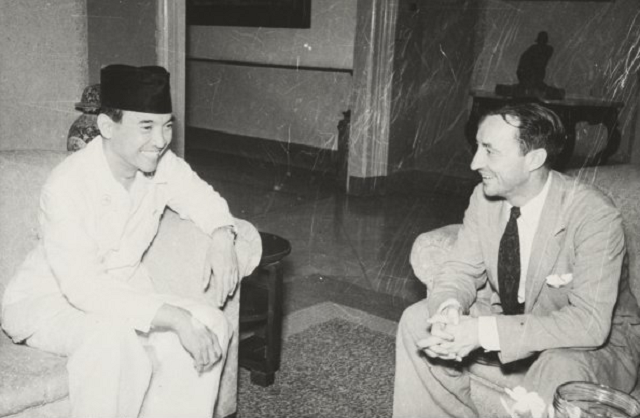
Next month, Indonesia’s president Joko Widodo will visit Washington—one of several trips he’s made this year including to Beijing and Tokyo. With major powers in the Indo-Pacific seeking enhanced bilateral ties with Indonesia, Jakarta’s attention to foreign policy matters will increasingly be divided and its diplomatic capacity stretched. Just last month, in fact, Australia's political leaders learned a bitter lesson about Canberra's relative lack of influence in Jakarta. The executions of Andrew Chan and Myuran Sukumaran were a grim induction into the realities of the Asian Century, a century which in its first decades has seen a volatile mix of ascendant states, resurgent nationalism and an enduring ambivalence about the West.
In hindsight, Chan and Sukumaran's deaths will likely mark a key disjuncture in the bilateral relationship between the Susilo Bambang Yudhoyono and Joko Widodo eras. As the Widodo Government has redefined Indonesia's national interests in predominantly cost-benefit terms and its political actors revitalised a Soekarno-era narrative of economic nationalism and political sovereignty, so too must Australia reappraise its relationship with Indonesia in unsentimental terms.
Previously, a key weakness of Australian politicians and policy-makers has been their tendency to exaggerate Australia's sense of propinquity with Indonesia and self-importance in Jakarta. Diplomats and military officers with one eye on the next promotion round in Canberra have been guilty of this, as have politicians of both political persuasions.
The Australian Labor Party (ALP), for example, claimed a special relationship with Indonesia based on its ardent support for Indonesia's republican movement by the then Minister and Department of External Affairs during the mid to late 1940s. Problematic in this version of history, however, was the lack of policy unanimity on Indonesia more broadly across government policy circles, with then-Immigration Minister Arthur Calwell railing against the dangers of miscegenation posed by the peoples of neighbouring states. For an excellent historical account of intra-bureaucratic differences over Indonesia see Margaret George’s
Australia and the Indonesian Revolution.
But it was Australia's identity debates of the late 1990s and early 2000s, which firmly posited Jakarta as a pawn in Australia's
'culture wars'. It was during this period that relations with Indonesia became a yardstick of Australia's foreign policy success in Asia. In the interim, mainstream political parties have jostled to prove who was more adept at managing Australia's bilateral relationship with Indonesia in differences over the management of highly contentious issues such as boat-borne asylum seekers, live cattle exports and espionage scandals.
For the Abbott Government, ‘more Jakarta and less Geneva’ was no doubt an accurate reflection of Australia's geopolitical and economic realities (as well as a thinly-veiled criticism of Rudd's excessive preoccupation with multilateralism). But as Bishop and Abbott have discovered, Jakarta's growing economic and international political clout has worked to diminish Australia’s policy autonomy within the bilateral relationship, particularly as the power asymmetry between the two states grows.
There is little doubt, for example, that Australian political leaders understood well ahead of the executions that the range of policy options beyond withdrawing Australia's ambassador were extremely limited. Punitive action against Jakarta would only prove counterproductive to Australia's extensive political, security and economic interests in Indonesia and hence Canberra's
relative haste in seeking a rapprochement following the executions.
In the aftermath of the deaths of Chan and Sukumaran, it’s time to be frank about Australia-Indonesia relations. There’s no special relationship between Canberra and Jakarta and there never was, precisely because the goodwill expressed toward Australia by individual Indonesian political leaders, diplomats and military officers has never really permeated Indonesia's broader political elite or public consciousness. Instead, there’s confluence of common interests and personal rapport between leaders at key junctures. Unfortunately, this isn’t one of those junctures.
 Print This Post
Print This Post